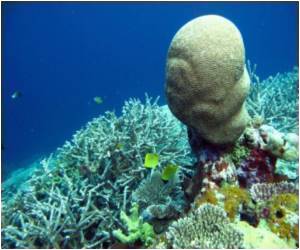As the planet warms, scientists warn that there will be a increase in the number of larger areas with low-oxygen dead zones in the world's oceans.

The scientific collaborative, led by Sarah Moffitt, from the UC Davis Bodega Marine Laboratory and Coastal and Marine Sciences Institute, analyzed more than 5,400 invertebrate fossils, from sea urchins to clams, within a sediment core from offshore Santa Barbara, California.
The tube-like sediment core was a slice of ocean life as it existed between 3,400 and 16,100 years ago, and provides a before-and-after snapshot of what happened during the last major deglaciation, a time of abrupt climate warming, melting polar ice caps, and expansion of low oxygen zones in the ocean.
The new study documented how long it has historically taken for ecosystems to begin recovery following dramatic shifts in climate.
The results suggested that future periods of global climate change may result in similar ecosystem-level effects with millennial-scale recovery periods. As the planet warms, scientists expect to see much larger areas of low-oxygen "dead zones" in the world’s oceans.
The study is published today in the journal PNAS.
 MEDINDIA
MEDINDIA


 Email
Email




